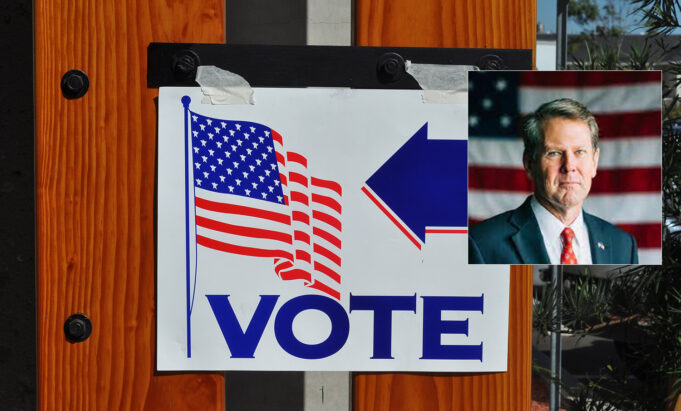ATLANTA (NNPA)—Civil rights groups have filed a new federal lawsuit against Georgia’s sweeping law that makes it much harder for all Georgians to vote, particularly voters of color, new citizens, and religious communities.
The American Civil Liberties Union, ACLU of Georgia, NAACP Legal Defense and Educational Fund, Inc. and other parties brought the case on behalf of the Sixth District of the African Methodist Episcopal Church, Georgia Muslim Voter Project, Women Watch Afrika, Latino Community Fund Georgia, and Delta Sigma Theta Sorority, Inc.
The law being challenged is S.B. 202, which was passed by the Georgia House of Representatives and Senate and signed by Gov. Brian Kemp in under seven hours in April. These elected officials’ actions follow the 2020 presidential election and the 2021 runoff elections for two seats to the U.S. Senate that saw record turnout of voters, particularly Black voters, in Georgia.
The elections were celebrated not just for their turnout, but also for their integrity, with Georgia officials praising them as safe and secure. But rather than act to expand participation in the political process, Georgia leaders responded by doing what they have done many times in the state’s history: they placed burdensome, unjustified, and unnecessary restrictions on voters, particularly voters of color and other historically disenfranchised communities.

The lawsuit challenges multiple provisions in S.B. 202, including the: ban on mobile voting,
new narrow identification requirements for requesting and casting an absentee ballot, delayed and compressed time period for requesting absentee ballots restrictions on secure drop boxes, out-of-precinct provisional ballot disqualification, and drastic reduction in early voting in runoff elections. Perhaps most cruelly, a ban on “line warming,” where volunteers provide water and snacks to Georgians, disproportionately those of color, who wait in needlessly long lines to cast their vote.
These provisions, the lawsuit charges, violate Section 2 of the Voting Rights Act, and infringe on Georgians’ rights under the First, Fourteenth, and Fifteenth Amendments to the United States Constitution.
“This law is driven by blatant racism, represents politics at its very worst, and is clearly illegal,” said Sophia Lakin, deputy director of the ACLU’s Voting Rights Project. “We urge the court to act swiftly to strike it down.”
“S.B. 202 is perhaps the most bold and shameful voter suppression legislation enacted in the modern era. Its purpose and target are clear: to create barriers to voting for Black voters who turned out in record numbers for the November 2020 presidential election and the January 2021 special election.
The provisions of the new law and the manner in which it was enacted reflect a thorough disregard for the sanctity of protecting the right to vote and a headlong and determined zeal to diminish Black political power in Georgia,” said Sherrilyn Ifill, Legal Defense Fund’s president and director-counsel. “This is a powerful moment for democracy in this country. S.B. 202’s attempt to disenfranchise Black voters in Georgia harkens back to the most shameful days of voter suppression in the decades before the civil rights movement.”
“S.B. 202 attacks the most sacred foundations of our democracy. But in this country, the law secures every American citizen the equal right to make their voice heard at the ballot box, no matter who they are. And we intend to vindicate that right in court,” said Adam Sieff, attorney at Davis Wright Tremaine.
The lawsuit, Sixth District of the African Methodist Episcopal Church v. Kemp, was filed in federal court in Atlanta.













